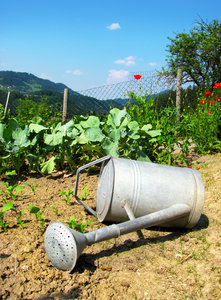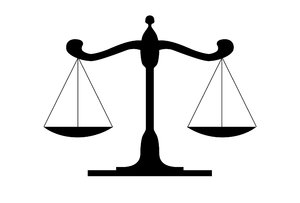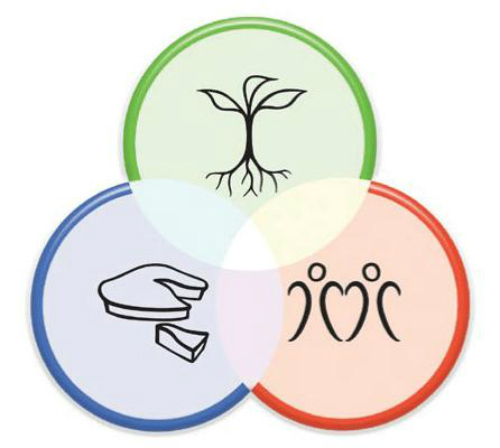You have not heard from Chaya much this past week because she is at a PDC (or Permaculture Design Course). Now Chaya just might be the most competent and smartest person that I know, so I am sure that she will do well there. After all she is under the tutelage of Skeeter and will even have a few sessions with Sepp Holzer on the last two days of the PDC. A PDC with Paul Wheaton, Kelly Ware and Kelda Miller in attendance is bound to be a great PDC!
If you spend enough time listening to Permaculture discussion you will find out that the gardening is the easy part. If that is true, why is it so? Because Permaculture subscribes to a set of three ethics.

Ethics, everyone expects them. If you have your signal light on indicating that you wish to occupy a parking space and someone else parks their first when it is clear to a third party that they would have seen your signal light, you would feel miffed and probably classify that behavior as “wrong.”
Ethics is a part of all of us. It makes up the filter for exchange in which we all interact with our world. Since Philosophy and Theology are part of my nerdy hobby set, I wanted to delve into the three Permaculture ethics here in this blog and give you my perspective.
Take any group of elementary school children with limited toys on the playground and there is bound to emerge some type of “expectation” of how things should be done. Adults are not exempt. Have you ever sat in a meeting with a colleague who goes on and on about minutiae? It does not matter whether someone is not respecting you, your time or your property, people have expectations about how they want to be treated.
Obviously we all carry our wants and needs around with us as we interact with the world. If that were not so, it would be hard to observe anything we call an economy.
So when Permaculture (although broadly encompassing many topics) arguably has a chief thrust towards producing food and claims three ethics as its base—my interest is piqued to be sure.
Three Permaculture Ethics Click on the picture to take you to PermaculturePrinciples.com/ethics Our friend Richard Telford has allowed us to use this awesome graphic with permission. It is even cooler on his site because it is interactive.
The three Permaculture ethics are defined as: (Hemenway, 2009)
1. Care for the Earth.
2. Care for People.
3. Reinvesting the surplus (that this care will create).
Now it is prudent to point out here that there is an alternate definition given for the third ethic stated like this:
3. Fair share
The difference between these two definitions is very significant, but I will have to get into that in another blog.
Succinctly put, “ethics leads us to ‘ought’ statements.” When we use “ought” statements, we have to be very careful at how we arrived at that truth.

This may seem technical, but it is important ground to cover when we talk about “ought.” To say that something is the case, and therefore ought to be the case is academically referred to as the Naturalistic Fallacy. My favorite author C.S. Lewis puts it this way in his landmark book The Problem of Pain,
All the human beings that history has heard of acknowledge some kind of morality; that is, they feel towards certain proposed actions the experiences expressed by the words “I ought” or “I ought not.” These experiences… cannot be logically deduced from the environment and physical experiences of the man who undergoes them. You can shuffle “I want” and “I am forced” and “I shall be well advised” and “I dare not” as long as you please without getting out of them the slightest hint of “ought” and “ought not.” (Lewis, 2011)
Interestingly enough, conversations about right and wrong generally surfaces via four different paths:
1. Preference (i.e. “this is what I like to have happen.”)
2. Pragmatism (i.e. “might makes right” or “this is what works for me”)
3. Democratic Rule (i.e. “the majority of the people have motioned for such and such”)
4. Morality (i.e. “such and such behavior is congruent with the moral law”)
So let us apply the “why” test to the three Permaculture ethics. Care of the earth, care of people and reinvesting back into the system are mere assertions without any teeth behind them if we cannot say why one ought to do it.

Take the disposal of used motor oil as an example. Say someone pours it out on the ground, is that wrong? How can you critique that? May be he likes the rainbow black sludge look in his yard (preference). May be it works for him because he does not have to be bothered to drive all the way to a place where it can be disposed of properly (pragmatism). May be none of his neighbors care enough to say anything against it (democratic rule). I think that we can all agree that the example is still in fact wrong, and that none of these challenges can prove that..
Getting down to brass tacks here, if two people do not share the same sentimentalities about the value of the earth, people or putting away for the future, then there is little use in making “ought” statements because there is nothing to arbitrate between two disagreeing parties. Preference and pragmatism cannot settle the matter and democratic rule can look a lot like the law of the jungle if certain civility measures are not taken. The application of such a contrived arbitration would be called “political correctness” where one party reserves to themselves the force of law to leverage their assertion over another person.
Chaya and I take our bench marks differently. We subscribe to God’s revealed truth in the Bible. It is common accusation that “the Christian right” does not care about the earth. When pressed some people apathetically might say, “Well it is all going to burn anyways.” This is a blatant misapplication of II Peter 3:10, “But the day of the Lord will come like a thief. The heavens will disappear with a roar; the elements will be destroyed by fire, and the earth and everything in it will be laid bare” (New International Version).

May be we can draw a more contemporary example here reductio ad absurdum. My neighbor just bought a truck. I know that all vehicles one day end up in the scrap yard. I decide that I am just going to speed up the process and deliver his truck down to the auto recycling center.
Let us review: true fact about every vehicles eventual fate. False assumption about my decision in the matter and who owns the truck. That instance would correctly be judged as wrong in which I would be likely charged with grand theft auto.
It is the same application of Biblical ethics here in relation to the environment. What has God said about the earth? Actually quite a bit, but for brevity’s sake let us go with these passages:
“In the beginning God created the heavens and the earth” Genesis 1:1, (New International Version).
“The Lord God took the man and put him in the Garden of Eden to work it and take care of it” Genesis 2:15, (New International Version)..
“The earth is the Lord’s, and everything in it, the world, and all who live in it; for he founded it upon the seas and established it upon the waters” Psalm 24:1-2, (New International Version)..
Now what normative behavior can we derive from these texts? First of all I see that He made it so it is accounted for and was deliberate and has intrinsic value as something that is fruit of His labor. Secondly, man was put into the original perfect creation to take care of it and to work in it (the KJV says to “dress” it). Lastly, to settle the ownership question, we find this passage in Psalm 24; seems like we would run afoul of His creation by not taking care of it. Furthermore, there are other passages about not mistreating animals in the Bible and still others that establish normative behavior as seeing to their welfare (e.g. Proverbs 12:10). Since we never see God changing His mind on these topics, we ought to consider them as standing orders.
So are the Permaculture ethics congruent with God’s Word? I would say, “yes,” and that more discussion would be further warranted on this matter.
Care of the Earth: it is part of stewardship and that comes from a proper application of the dominion mandate in Genesis 1:26-28.
Care of People: most definitely so, numerous passages come to mind here like James 2:14-17.
Reinvest the surplus: wealth accumulation is a natural outcome of work (which God Himself instituted), so we can derive the principle that keeping that cycle going productively pleases God Proverbs 27:23-27.
I am not simply trying to enlarge Christianity’s normative behavior set to include proper care of the earth in order to coopt Permaculture. Rather, I am saying that the statement, “We ought to take care of the earth” is consistent with what would be considered right conduct (or ethics) as defined by Christianity.
Wilson
Pro Deo et Patria
Photo Credits:
Pears by mWk7jMi
Garden by mGBSvzk
Three Permaculture Ethics used with permission from PermaculturePrinciples.com
Sad Oil Can by n2lAc1Y
Junk Yard by mirw4Tw
Justice scales by 2dRS3kW
Works Cited:
Hemingway, T. (2009). Gaia’s garden. (2nd ed., p. 6). White River Junction: Chelsea Green Publishing.
Lewis, C. S. (2011). The problem of pain. (p. 10). New York City: Harper Collins.
Further Reading: Assemblies of God General Council position on animal treatment in a publication from the Humane Society of the United States. http://www.humanesociety.org/assets/pdfs/faith/assemblies_of_god_2011.pdf

